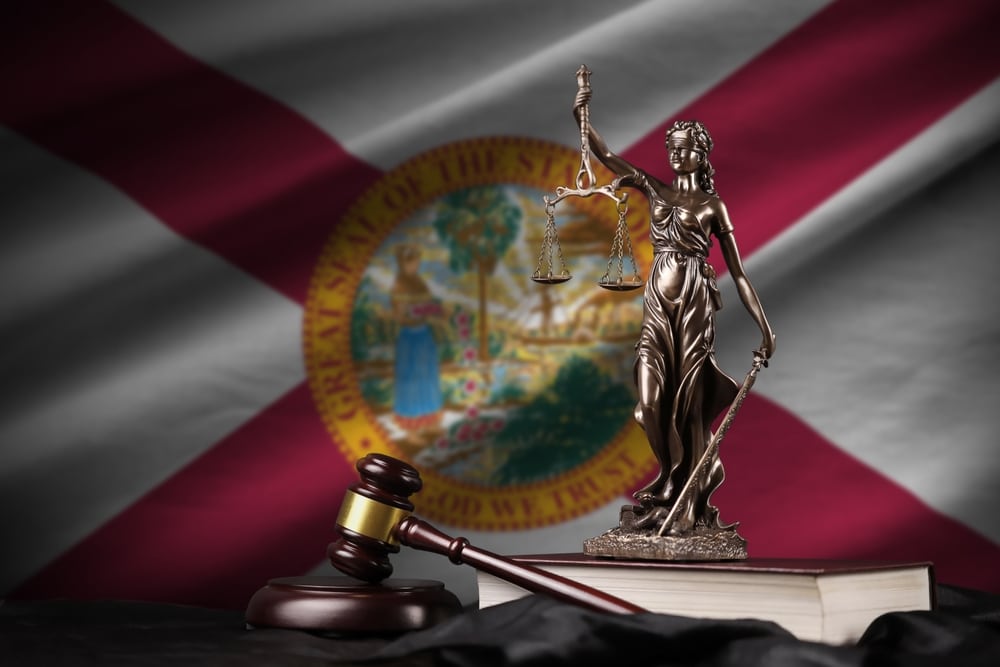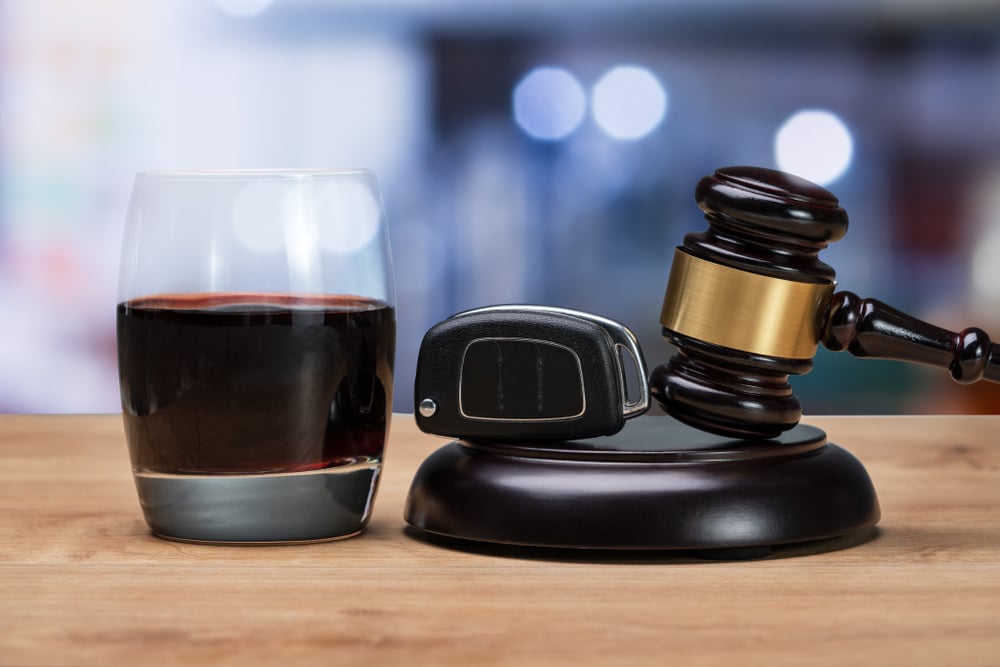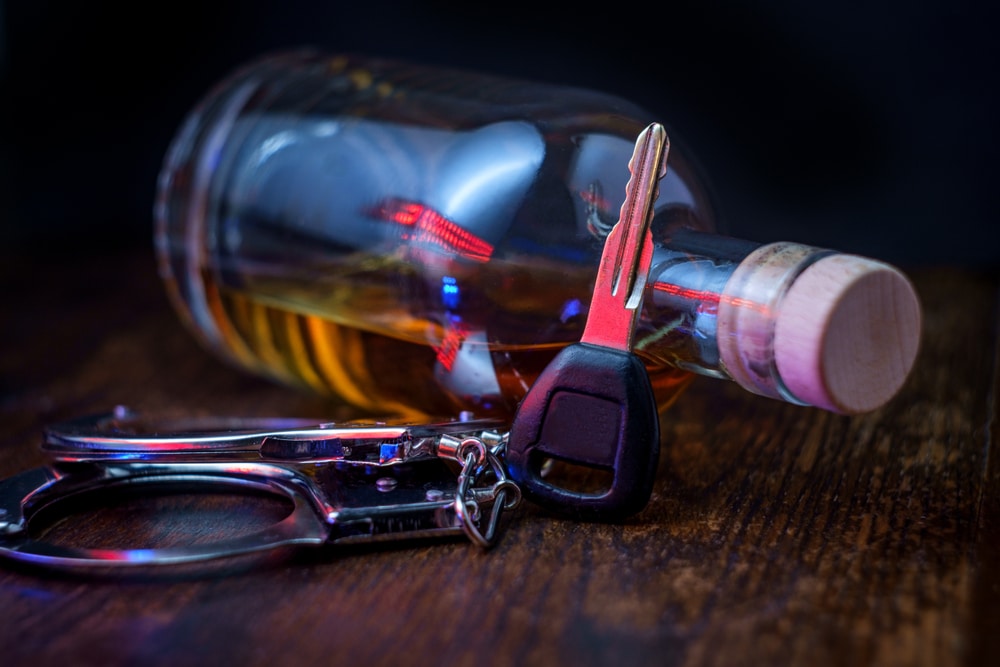
Florida maintains strict DUI laws with a per se blood alcohol concentration (BAC) limit of 0.08% for adult drivers and zero tolerance (0.02%) for drivers under 21. The state operates under implied consent laws, requiring drivers to submit to chemical testing when requested by law enforcement with probable cause. Refusal results in automatic license suspension and can be used as evidence in court.
Florida’s enforcement approach involves coordination between state, county, and municipal agencies, with particular emphasis on high-tourist areas and major metropolitan regions. The state implements enhanced enforcement during peak tourist seasons and major events. Law enforcement officers receive specialized training in DUI detection and enforcement, including advanced roadside testing procedures.

0.08% or higher for regular drivers and 0.04% for commercial drivers

Yes

6 months

Mandatory

Yes (0.15%+)
Florida’s diverse landscape presents unique challenges for DUI enforcement, from densely populated urban areas to rural communities and tourist destinations. The state’s large population, combined with its status as a top tourist destination, creates complex enforcement scenarios. Seasonal population fluctuations significantly impact DUI patterns and enforcement strategies.
The presence of numerous entertainment districts, beaches, and tourist attractions requires specialized enforcement approaches. The state’s extensive coastline and waterways also necessitate coordinated efforts between land and maritime law enforcement agencies.
First-time DUI offenders in Florida face penalties including up to 6 months in jail, fines ranging from $500 to $1,000, license revocation for at least 180 days, and mandatory completion of DUI school and substance abuse evaluation. The state employs a 10-year lookback period for determining repeat offender status.
Multiple offenses carry progressively harsher penalties, with third offenses within 10 years classified as felonies. Second offenses require mandatory jail time and longer license revocation periods. The state imposes enhanced penalties for high BAC levels (0.15% or higher) and mandates ignition interlock devices for repeat offenders and high-BAC cases.
Florida imposes enhanced penalties for DUI involving aggravating factors such as crashes causing injury or death, presence of minors in the vehicle, or extremely high BAC levels. These circumstances can result in felony charges with mandatory prison sentences and extended license revocations. The state maintains specific vehicular homicide and manslaughter statutes for fatal DUI incidents.
Commercial drivers face stricter standards with a BAC limit of 0.04% and severe penalties affecting their commercial driving privileges. The state also applies enhanced penalties for DUIs in school zones, construction zones, or during state emergencies. Boating under the influence (BUI) carries similar penalties to DUI and affects both vessel and driver’s license privileges.
Florida employs comprehensive enforcement strategies including routine patrols, sobriety checkpoints, and saturation patrols. The state coordinates multi-agency enforcement efforts, particularly during major events and holiday periods. Specialized DUI enforcement units operate in high-risk areas and during peak hours.
Law enforcement agencies utilize data-driven approaches to target enforcement resources effectively. The state maintains a network of dedicated DUI enforcement officers and drug recognition experts (DREs). Mobile breath testing units and specialized DUI processing centers enhance enforcement efficiency in urban areas.
Florida utilizes state-of-the-art breath testing equipment, including roadside preliminary breath testing devices and evidential breath testing instruments at processing facilities. All testing equipment undergoes regular calibration and certification following Department of Law Enforcement standards.
The state maintains certified laboratories for blood and urine analysis, with strict chain of custody procedures. Advanced technology includes automated license plate readers, body-worn cameras, and digital evidence collection systems to document DUI investigations and arrests.
Florida requires comprehensive substance abuse evaluation and treatment for all DUI offenders. Programs range from basic DUI schools for first-time offenders to intensive treatment programs for repeat offenders or those with identified substance use disorders.
The state maintains a network of certified DUI programs and treatment providers. Treatment approaches include education, counseling, behavioral modification, and ongoing monitoring. Programs are designed to address both alcohol and drug abuse issues, with specialized services for various populations.
Florida implements a structured treatment system requiring completion of specific programs based on offense level and evaluation results. First-time offenders must complete Level I DUI School, while repeat offenders must complete more intensive Level II programs. Additional treatment requirements may be imposed based on substance abuse evaluation outcomes.
The state maintains strict certification requirements for treatment providers and DUI schools. Programs must follow standardized curricula while allowing for individualized treatment planning. The framework includes provisions for specialized programs addressing specific needs such as language barriers or mental health issues.


Florida utilizes various monitoring tools including probation supervision, random drug and alcohol testing, and ignition interlock devices. The state’s monitoring system includes regular reporting requirements, compliance checks, and immediate consequences for violations.
Monitoring intensity varies based on risk assessment and compliance history. High-risk offenders may be subject to SCRAM devices, GPS monitoring, or enhanced supervision requirements. The state maintains a database tracking compliance and violations across jurisdictions.
Florida operates a dual-track system processing DUI cases through both criminal courts and administrative channels via the Department of Highway Safety and Motor Vehicles (DHSMV). Administrative license suspension begins immediately upon arrest, with drivers having 10 days to request a formal review hearing.
The administrative process functions independently of criminal proceedings, allowing for license sanctions regardless of criminal case outcomes. The DHSMV maintains separate procedures for test refusals and failed chemical tests, with different suspension periods and reinstatement requirements.
DHSMV hearings focus on specific statutory elements including probable cause, proper arrest procedures, and chemical test validity. Hearing officers have authority to sustain, invalidate, or modify license suspensions based on evidence presented.
The process includes provisions for hardship licenses allowing limited driving privileges for eligible offenders. Administrative procedures include specific timeframes for requesting hearings, submitting evidence, and appealing decisions. The state maintains strict documentation requirements for all administrative actions.
Florida’s DUI cases are processed through County Courts for misdemeanors and Circuit Courts for felonies. Initial appearances typically occur within 24 hours of arrest, where defendants receive formal charges and bond conditions. The court process includes pretrial conferences, motion hearings, and either trial proceedings or plea negotiations.
Many jurisdictions operate specialized DUI courts focusing on rehabilitation through intensive supervision and treatment. These courts implement regular status hearings and coordinate with multiple agencies to monitor offender progress. The state maintains specific procedures for handling repeat offenders and cases involving serious injuries or fatalities.
Florida’s DUI system involves multiple agencies including the Department of Highway Safety and Motor Vehicles, Florida Highway Patrol, and Department of Law Enforcement. The Office of the State Courts Administrator oversees court operations, while the Department of Corrections manages probation supervision.
Local law enforcement agencies and State Attorney’s offices handle most enforcement and prosecution duties. The Agency for Health Care Administration oversees treatment provider certification and program standards. The Department of Health maintains testing laboratories and toxicology standards.
Florida participates in the Interstate Driver License Compact, sharing conviction information and enforcing out-of-state DUI penalties. The state’s high tourist population creates unique challenges with out-of-state offenders and license reciprocity issues. Special procedures exist for handling international tourists involved in DUI incidents.
The state maintains agreements with neighboring states for cross-border enforcement and information sharing. Military personnel stationed at Florida’s numerous military installations face both state and military consequences for DUI offenses, requiring coordination between jurisdictions.
Florida’s diverse jurisdiction includes federal properties, tribal lands, maritime waters, and extensive tourist areas, creating complex enforcement scenarios. The state maintains specific agreements with federal and tribal authorities for enforcement coordination and implements specialized procedures for maritime DUI enforcement.
Tourist areas, theme parks, and entertainment districts present unique challenges requiring specialized enforcement strategies. The state’s extensive coastline necessitates coordination between marine patrol units and traditional law enforcement agencies.
DUI incidents in Florida generate substantial direct costs including enforcement, prosecution, and incarceration, estimated at over $1 billion annually. Individual offenders face average costs exceeding $10,000 per arrest, including fines, legal fees, treatment costs, and increased insurance premiums.
The state allocates significant resources to enforcement and prevention programs, particularly in high-tourism areas. Revenue from fines and fees partially offset system costs but represent a small portion of total expenses. Local jurisdictions bear substantial costs for enforcement and court operations.


Florida’s large population and tourism industry magnify the societal impact of DUI incidents. Lost productivity, medical costs, and property damage contribute to annual societal costs exceeding $5 billion. Healthcare systems absorb significant expenses for emergency care and long-term treatment of DUI-related injuries.
The impact on tourism and the state’s reputation creates additional economic consequences. Communities face increased insurance rates and strain on emergency services, particularly in areas with high DUI incident rates.
Recent legislative efforts focus on strengthening penalties for drug-impaired driving and expanding treatment options. The state legislature regularly reviews DUI laws to address emerging challenges, particularly regarding marijuana impairment and new synthetic substances.
Proposed legislation includes implementing new testing technologies, enhancing penalties for extreme DUI cases, and expanding treatment alternatives. There is increasing emphasis on prevention technology and ride-sharing partnerships, especially in urban areas and tourist destinations.
Florida actively implements advanced enforcement technologies, including real-time data sharing between agencies and digital evidence collection systems. Law enforcement agencies utilize artificial intelligence for predictive enforcement patterns and automated license plate readers for vehicle identification.
The state is exploring new monitoring technologies including remote breath testing devices and GPS-enabled monitoring systems. Advanced analytics help identify high-risk locations and times for enhanced enforcement efforts.
Drug-impaired driving presents increasing challenges in Florida, particularly with the state’s aging population and prescription drug use. Law enforcement agencies are expanding training in drug recognition and implementing new detection methods. The growth of medical marijuana use creates additional complexity in impairment detection and enforcement.
The state faces unique challenges with aging drivers and medication interactions. Tourism patterns and ride-sharing services continue to impact DUI trends, particularly in urban areas and entertainment districts. New vehicle technologies, including various levels of automation, present emerging enforcement considerations.
Florida implements comprehensive prevention strategies targeting diverse populations. Programs include school-based education, community outreach, and specialized campaigns during high-risk periods such as spring break and major events. The state provides grants for local prevention initiatives and alternative transportation programs.
Tourism-focused prevention efforts include partnerships with hotels, rental car companies, and entertainment venues. The state maintains multilingual education programs and culturally specific outreach efforts to address its diverse population.
Florida’s DUI convictions significantly impact employment opportunities, particularly in tourism, transportation, and healthcare sectors. Commercial drivers face mandatory disqualification periods and potential career-ending consequences. Many employers in the state’s service-based economy require clean driving records, affecting job prospects across various industries.
Professional licenses may be affected, with mandatory reporting requirements for healthcare workers, educators, and other licensed professionals. The state’s background check system makes DUI convictions visible to employers, potentially limiting career advancement and job opportunities in Florida’s competitive job market.
Florida’s treatment programs show varying success rates, with comprehensive programs demonstrating better outcomes than basic intervention. Studies indicate that programs combining education, counseling, and monitoring achieve recidivism rates 30-40% lower than education-only approaches.
The state tracks program effectiveness through mandatory reporting and outcome studies. Data shows improved success rates for offenders completing both treatment and aftercare programs, particularly when combined with regular monitoring and support services. Programs addressing both substance abuse and mental health issues show promising results.
DUI convictions in Florida result in significant insurance consequences, with premium increases typically ranging from 200-400%. Many insurers require high-risk insurance coverage for 3-5 years following conviction. Some carriers may decline coverage entirely, forcing offenders into the assigned risk pool.
The state requires comprehensive insurance coverage with specific minimum limits for DUI offenders. Multiple offenses often result in extended high-risk insurance requirements and substantially higher premiums.


Florida mandates FR-44 certification (similar to SR-22 but with higher coverage requirements) for all DUI offenders seeking license reinstatement. The filing must be maintained for three years following conviction or license reinstatement. Coverage lapses trigger automatic license suspension and restart the filing period.
Insurance providers must immediately notify the DHSMV of any coverage cancellation or lapse. The state maintains strict monitoring of FR-44 compliance and requires liability coverage at twice the normal state minimum limits.
DUI convictions in Florida create significant lifestyle challenges, particularly given the state’s car-dependent culture and limited public transportation options in many areas. The impact is especially severe in rural areas and communities with limited alternative transportation services.
Financial burdens from fines, increased insurance costs, and treatment expenses create long-term economic challenges. Social stigma and professional relationships can be significantly affected, particularly in smaller communities. Travel restrictions can impact family relationships and employment opportunities, especially in a state with dispersed population centers.
Florida’s DUI enforcement system reflects the unique challenges of a large, diverse state with significant tourism impact. The state maintains a comprehensive approach combining strict enforcement, progressive penalties, and rehabilitation opportunities. The system addresses the complexities of managing DUI incidents in a state with varying population densities, extensive coastline, and diverse jurisdictional requirements.
The legal framework establishes clear consequences while providing rehabilitation pathways through a structured treatment system. Administrative procedures work alongside criminal proceedings to ensure swift action while maintaining due process rights. The state’s implementation of technology and coordination between agencies enhances enforcement effectiveness and offender monitoring.
Treatment and rehabilitation programs form a crucial component of the state’s approach, with requirements tailored to offense severity and individual needs. The economic impact extends beyond direct penalties to include broader societal costs, particularly affecting employment opportunities and insurance expenses. The tourism-based economy creates unique challenges and considerations in both enforcement and prevention efforts.
Recent developments focus on addressing challenges related to drug-impaired driving, aging population concerns, and the integration of new enforcement technologies. Prevention and education programs continue to evolve, with increasing emphasis on targeted interventions and community engagement, particularly in high-tourist areas and diverse communities.
The system’s effectiveness is demonstrated through declining DUI rates in many areas, though challenges remain in rural regions and areas with limited public transportation options. The state continues to adapt its approach through legislative updates and program evaluations, ensuring the system evolves to meet changing circumstances while maintaining its fundamental goal of reducing impaired driving incidents.
At DUI 101, our mission is to empower you with the knowledge needed to make informed decisions during this challenging time. Explore our articles and guides to better understand your situation and the steps ahead.
© 2024 Chapman SEO LLC. This website is for educational and informational purposes only. All content is created using AI technology and maintained by non-lawyers and should not be considered legal advice. The information provided is general in nature and may not be suitable for your specific situation. Always consult with a qualified legal professional for advice regarding your individual circumstances. We do not create attorney-client relationships through this website. By using this site, you acknowledge that you have read and understand these terms.